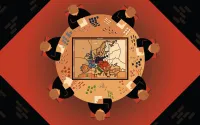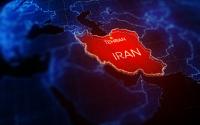30 June 2005Guardian
AN EARLY ALARM
"While the conventional, political dangers - the threat of global annihilation, the fact of regional war - appear to be receding, we have all recently become aware of another insidious danger. It is as menacing in its way as those more accustomed perils with which international diplomacy has concerned itself for centuries. It is the prospect of irretrievable damage to the atmosphere, to the oceans, to earth itself.
What we are now doing to the world, by degrading the land surfaces, by polluting the waters and by adding greenhouse gases to the air at an unprecedented rate - all this is new in the experience of the earth. It is mankind and his activities that are changing the environment of our planet in damaging and dangerous ways.
The result is that change in future is likely to be more fundamental and more widespread than anything we have known hitherto. Change to the sea around us, change to the atmosphere above, leading in turn to change in the world's climate, which could alter the way we live in the most fundamental way of all. That prospect is a new factor in human affairs. It is comparable in its implications to the discovery of how to split the atom. Indeed, its results could be even more far-reaching.
The evidence is there. The damage is being done. What do we, the international community, do about it?
In some areas, the action required is primarily for individual nations or groups of nations to take. But the problem of global climate change is one that affects us all and action will only be effective if it is taken at the international level. It is no good squabbling over who is responsible or who should pay. We have to look forward not backward, and we shall only succeed in dealing with the problems through a vast international, co-operative effort.
The environmental challenge that confronts the whole world demands an equivalent response from the whole world. Every country will be affected and no one can opt out. Those countries who are industrialised must contribute more to help those who are not.
The work ahead will be long and exacting. We should embark on it hopeful of success, not fearful of failure. Darwin's voyages were among the high-points of scientific discovery. They were undertaken at a time when men and women felt growing confidence that we could not only understand the natural world but we could master it, too. Today, we have learned rather more humility and respect for the balance of nature. But another of the beliefs of Darwin's era should help to see us through - the belief in reason and the scientific method.
Reason is humanity's special gift. It allows us to understand the structure of the nucleus. It enables us to explore the heavens. It helps us to conquer disease. Now we must use our reason to find a way in which we can live with nature, and not dominate nature.
We need our reason to teach us today that we are not - that we must not try to be - the lords of all we survey.
We are not the lords, we are the Lord's creatures, the trustees of this planet, charged today with preserving life itself - preserving life with all its mystery and all its wonder.
May we all be equal to that task."
GOING NOWHERE
Three things jump off the page when you read Mrs Thatcher's speech, writes George Monbiot. The first is that she was surprisingly well-informed. For that, we had her adviser Sir Crispin Tickell to thank: he was the farsighted British ambassador to the UN, who had taken time off from the Foreign Office to study climate change.
The second is that it is a classic work of prime ministerial humbug. Two days before she delivered the speech, the UK blocked a proposal at a conference in the Netherlands for a 20% reduction in CO2 emissions by 2005. On the day after the speech, the energy secretary, John Wakeham, told the House of Commons that he had been forced to abandon the government's insane plan to privatise nuclear power. It was Thatcher who insisted that "nothing can stop the great car economy" and her ministers who announced "the biggest roadbuilding programme since the Romans".
Thatcher's speech claims credit for measures that the UK either sought to block or accepted under protest. And the solution she proposes for business is, of course, business as usual.
But perhaps the most striking thing about the speech is that it could have been delivered today. At the G8 summit, we will hear the same tones of revelation and surprise. Now, as then, the political elite will give the impression of having discovered the importance of this issue for the first time. In 16 years, we've gone nowhere.
At the time, however, and for all the hypocrisy and ideological fixation it contained, it looked as if the speech would become a turning point for the environment. Five months before, the Greens had won 15% of the vote in the Euro elections. Two years before, the Montreal protocol on the protection of the ozone layer had been signed. It finally looked as if world leaders might be prepared to contemplate meaningful treaties on the protection of everything else. The media was crammed with stories about climate change, rainforest destruction, habitat loss and waste.
The momentum lasted until just after the Rio Earth Summit in 1992. Then the story was killed. John Birt, BBC director general, Michael Jackson, BBC2 controller, and Michael Grade, Channel 4 chief executive, purged environmental programmes from the television schedules. I suspect they saw them as counter-aspirational and, in Channel 4's case, bad for business.
From then on, they broadcast furious attacks on environmentalism, such as Channel 4's series Against Nature and BBC2's Scare Stories. Most of the newspapers, with an eye on the interests of their proprietors and advertisers, followed their example.
Environmental campaigns - especially the mobilisation against the roads programme launched by Thatcher - proliferated, but, shut out by the media, the issue soon fell off the political agenda.
Sixteen years later, we are back where we started, with a prime minister making grand statements he has no intention of acting upon, while presiding over a disastrous environmental record. It makes you feel quite nostalgic.






